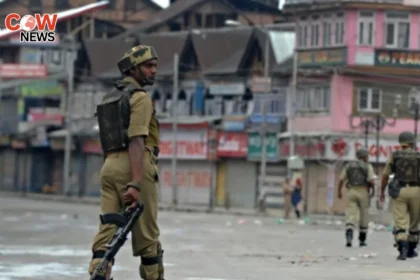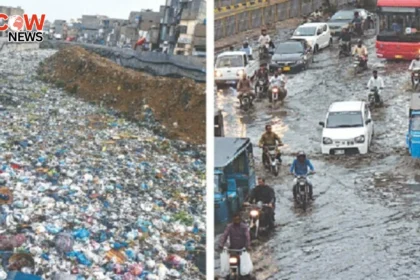Islamabad’s Green Vision: A Full Transition to Electric Buses
Islamabad, the capital city of Pakistan, is embarking on an ambitious journey to completely transition its public transportation system to electric buses. This bold initiative is a key component of the city’s broader efforts to combat climate change, reduce air pollution, and modernize its public transport infrastructure. The shift to electric buses not only promises a cleaner environment but also represents Pakistan’s growing commitment to sustainability and the global fight against climate change.
The electric bus initiative comes as part of a nationwide push towards cleaner energy and transportation alternatives, and Islamabad aims to be a leader in this transformation. The transition, once fully implemented, will not only reduce the city’s carbon footprint but also offer a modern, efficient, and reliable mode of transportation for its residents.
The Need for Change: Air Pollution and Climate Crisis in Pakistan
Pakistan is among the countries most affected by climate change, despite contributing relatively little to global greenhouse gas emissions. In recent years, Pakistan has experienced devastating floods, rising temperatures, and air pollution, particularly in its urban centers. Cities like Lahore and Karachi have frequently been listed among the most polluted cities in the world. Islamabad, while faring better in air quality than some of the other major cities, has not been immune to the impacts of vehicle emissions and rapid urbanization.
Public transportation systems in many of Pakistan’s cities are outdated, inefficient, and heavily reliant on fossil fuels. These diesel-powered buses contribute significantly to air pollution, which is already a pressing issue. In a country where air pollution leads to thousands of premature deaths annually, shifting to electric buses is seen as a necessary step to mitigate these impacts.
Electric buses produce zero tailpipe emissions, making them an attractive solution to combat air pollution and reduce the harmful health effects associated with poor air quality. By transitioning to electric buses, Islamabad is taking a proactive step towards improving the health of its residents while also addressing the global climate crisis.
Electric Buses: A Game-Changer for Public Transportation
Electric buses offer numerous advantages over traditional diesel-powered buses. They are not only more environmentally friendly but also more cost-efficient in the long run. While the initial cost of electric buses may be higher, the lower operational and maintenance costs make them a more economical choice over time. Electric buses do not require fuel, and their maintenance costs are significantly lower due to fewer moving parts and the absence of internal combustion engines.
Additionally, electric buses are quieter than diesel buses, reducing noise pollution in urban areas. This is especially important in cities like Islamabad, where rapid urban growth has led to increased traffic and noise levels. The introduction of quieter electric buses will help create a more peaceful and livable urban environment for residents.
In terms of performance, electric buses are highly reliable and offer smoother acceleration and deceleration compared to their diesel counterparts. They are equipped with regenerative braking systems, which allow them to recover energy during braking and use it to recharge their batteries. This not only enhances the efficiency of the buses but also extends their driving range, making them suitable for longer routes in the city.
Islamabad’s Roadmap to Electric Mobility
The Islamabad Capital Territory (ICT) administration, in collaboration with various government agencies and private stakeholders, has developed a comprehensive roadmap to facilitate the transition to electric buses. The plan involves a phased approach, starting with the introduction of a limited fleet of electric buses that will gradually be expanded over the coming years.
Initially, the electric buses will be deployed on key routes within the city, connecting major commercial centers, government offices, educational institutions, and residential areas. These routes have been strategically selected to maximize the impact of the new buses, both in terms of reducing emissions and improving accessibility for the city’s residents.
As part of the transition, the ICT administration will also invest in building the necessary charging infrastructure across the city. Charging stations will be installed at key bus terminals, depots, and other strategic locations to ensure that the electric buses can operate efficiently throughout the day. The administration is also exploring the possibility of incorporating solar energy into the charging infrastructure, further reducing the reliance on fossil fuels and enhancing the sustainability of the initiative.
The government has committed to providing financial incentives and subsidies to encourage the adoption of electric buses. This includes subsidies for the purchase of electric buses, as well as incentives for companies that invest in electric vehicle (EV) charging infrastructure. By offering these incentives, the government hopes to attract more private sector investment and accelerate the transition to electric mobility in Islamabad.
The Role of Public-Private Partnerships
To successfully implement the electric bus initiative, the Islamabad Capital Territory administration is relying on strong public-private partnerships. The transition to electric buses is a significant undertaking that requires substantial investment, technological expertise, and collaboration between various stakeholders. By working closely with private companies, both domestic and international, the government aims to leverage their expertise in electric vehicle technology and infrastructure development.
Several international companies specializing in electric vehicle manufacturing have expressed interest in partnering with the Pakistani government to support the transition. These companies bring valuable experience in designing and manufacturing electric buses that can withstand the unique challenges of operating in Pakistan’s diverse climate and terrain.
Local companies are also playing a critical role in the project. Pakistani firms involved in the energy and transportation sectors are collaborating with the government to build the necessary infrastructure for charging and maintaining the electric buses. By fostering these partnerships, Islamabad can ensure the long-term success and sustainability of the electric bus initiative.
Overcoming Challenges: Infrastructure and Cost
While the benefits of transitioning to electric buses are clear, there are several challenges that need to be addressed to ensure the success of the initiative. One of the primary challenges is the development of adequate charging infrastructure. Electric buses require a network of charging stations to operate efficiently, and the installation of these stations across Islamabad is a significant undertaking.
The ICT administration is working closely with private companies to build this infrastructure, but it will take time to establish a comprehensive network. Additionally, the government is exploring the use of fast-charging technology to reduce the time it takes to recharge the buses, allowing them to spend more time on the road and less time at charging stations.
Another challenge is the cost of electric buses. Although they offer long-term savings in terms of operational and maintenance costs, the initial purchase price of electric buses is higher than that of traditional diesel buses. To address this, the government is providing subsidies and financial incentives to reduce the cost burden on transportation companies and encourage the adoption of electric buses.
Additionally, the ICT administration is exploring financing options to spread the cost of electric buses over a longer period, making them more affordable for public transportation providers. By addressing these financial and infrastructural challenges, Islamabad can ensure a smooth transition to electric mobility and set an example for other cities in Pakistan.
The Broader Impact: Reducing Carbon Emissions and Enhancing Quality of Life
The shift to electric buses in Islamabad is expected to have a significant impact on reducing the city’s carbon emissions. Transportation is one of the largest sources of greenhouse gas emissions in Pakistan, and by transitioning to electric buses, Islamabad can make a meaningful contribution to the country’s efforts to reduce its carbon footprint.
In addition to the environmental benefits, the introduction of electric buses will enhance the quality of life for Islamabad’s residents. The reduction in air and noise pollution will create a cleaner and quieter urban environment, improving the overall livability of the city. Moreover, the modern, efficient electric buses will provide residents with a more reliable and comfortable mode of transportation, encouraging more people to use public transit rather than private vehicles.
This shift could also have broader economic benefits. By reducing the city’s reliance on imported fossil fuels, Islamabad can decrease its vulnerability to fluctuations in global oil prices and reduce its overall energy costs. Furthermore, the development of charging infrastructure and the adoption of electric vehicles could create new job opportunities in the energy and transportation sectors.
The Path Forward: A Greener Future for Islamabad
Islamabad’s transition to electric buses represents a significant step forward in the city’s efforts to build a more sustainable and resilient transportation system. By embracing electric mobility, the capital is setting a powerful example for other cities in Pakistan and around the world. The initiative reflects a growing recognition of the need for cleaner, more efficient transportation solutions in the face of climate change and environmental degradation.
As Islamabad moves towards a future powered by electric buses, it will continue to face challenges along the way. However, with the right policies, partnerships, and investments, the city is well on its way to becoming a leader in sustainable transportation. The success of this initiative will not only improve the lives of the city’s residents but also contribute to the global effort to combat climate change and create a greener, more sustainable future for all.
#ElectricBuses #SustainableTransportation #CleanEnergy #IslamabadGreenInitiative #ClimateChangeAction #ElectricVehicles #PublicTransportRevolution #PakistanSustainability #UrbanMobility #ElectricMobility #GreenPakistan #CarbonReduction #ZeroEmissions #EVChargingStations #AirQualityImprovement







